
Tacuarembó: The Heartbeat of Uruguayan Culture
Tacuarembó, nestled in the heart of Uruguay, is a city that pulses with rich culture and history. Famous for being the birthplace of tango legend Carlos Gardel, this charming city offers an authentic glimpse into the country's soul. The streets of Tacuarembó are alive with music, dance, and a vibrant local life that captivates visitors from the moment they arrive. One of the city's highlights is the annual Festival de la Patria Gaucha, held every March. This festival is a celebration of gaucho culture, featuring traditional music, dance, horse riding, and delicious Uruguayan cuisine. It's a perfect event for tourists eager to immerse themselves in the local traditions and enjoy the lively atmosphere. Nature lovers will also find Tacuarembó appealing, with its scenic landscapes and outdoor activities. The city is surrounded by beautiful countryside, offering opportunities for hiking, horseback riding, and exploring the serene Lago de Tacuarembó. The natural beauty of the area provides a refreshing escape from the hustle and bustle of city life. Tacuarembó is also home to several museums and historical sites, such as the Museo Carlos Gardel and the Gruta de los Helechos. These attractions offer a deep dive into the city's past and its cultural significance. Visitors can learn about the life and legacy of Gardel, as well as explore the unique flora and fauna of the region.
Local tips in Tacuarembó
- Visit during the Festival de la Patria Gaucha in March to experience the best of gaucho culture.
- Don't miss the Museo Carlos Gardel to learn about the famous tango singer.
- Explore the Gruta de los Helechos for a unique natural experience.
- Try the local cuisine, especially during festivals, for an authentic taste of Uruguay.
- Take a day trip to Lago de Tacuarembó for outdoor activities and relaxation.
Tacuarembó: The Heartbeat of Uruguayan Culture
Tacuarembó, nestled in the heart of Uruguay, is a city that pulses with rich culture and history. Famous for being the birthplace of tango legend Carlos Gardel, this charming city offers an authentic glimpse into the country's soul. The streets of Tacuarembó are alive with music, dance, and a vibrant local life that captivates visitors from the moment they arrive. One of the city's highlights is the annual Festival de la Patria Gaucha, held every March. This festival is a celebration of gaucho culture, featuring traditional music, dance, horse riding, and delicious Uruguayan cuisine. It's a perfect event for tourists eager to immerse themselves in the local traditions and enjoy the lively atmosphere. Nature lovers will also find Tacuarembó appealing, with its scenic landscapes and outdoor activities. The city is surrounded by beautiful countryside, offering opportunities for hiking, horseback riding, and exploring the serene Lago de Tacuarembó. The natural beauty of the area provides a refreshing escape from the hustle and bustle of city life. Tacuarembó is also home to several museums and historical sites, such as the Museo Carlos Gardel and the Gruta de los Helechos. These attractions offer a deep dive into the city's past and its cultural significance. Visitors can learn about the life and legacy of Gardel, as well as explore the unique flora and fauna of the region.
When is the best time to go to Tacuarembó?
Iconic landmarks you can’t miss
Plaza on April 19
Experience the vibrant culture and lush greenery of Plaza on April 19, a must-visit park in Tacuarembó, Uruguay.

Rodó Park
Explore the lush landscapes, serene lakes, and vibrant community spirit of Rodó Park, a tranquil oasis in Tacuarembó, Uruguay.

Hotel Carlos Gardel
Discover the heart of Tacuarembó at Hotel Carlos Gardel, where comfort meets the rich cultural tapestry of Uruguay.

FordT City Hotel
Experience the charm of Tacuarembó at FordT City Hotel, where comfort meets local culture for an unforgettable stay.

Carlos Gardel Museum
Explore the Carlos Gardel Museum in Valle Edén, a tribute to the legendary tango singer and a celebration of Uruguay's rich cultural heritage.

Deep Well
Explore the tranquil beauty of Deep Well, an enchanting tourist attraction in Valle Edén, Tacuarembó, perfect for nature lovers and adventure seekers alike.

Obelisco Tacuarembo
Discover the Obelisco Tacuarembo, a stunning cultural monument that captures the spirit of Uruguay's rich heritage and community life.

Indian Museum
Immerse yourself in the cultural legacy of Uruguay at the Indian Museum, a treasure trove of indigenous art and history in Tacuarembo.

Puente Colgante
Experience the breathtaking views and architectural beauty of Puente Colgante, a must-visit hanging bridge in Valle Edén, Tacuarembó, Uruguay.

Complejo San Fructuoso
Experience the tranquility of Complejo San Fructuoso, your serene lodging destination in Tacuarembó, Uruguay, surrounded by breathtaking natural beauty.

Ñangapiré Posada de Campo
Experience tranquility and local culture at Ñangapiré Posada de Campo, your perfect retreat in the heart of Uruguay's stunning landscapes.
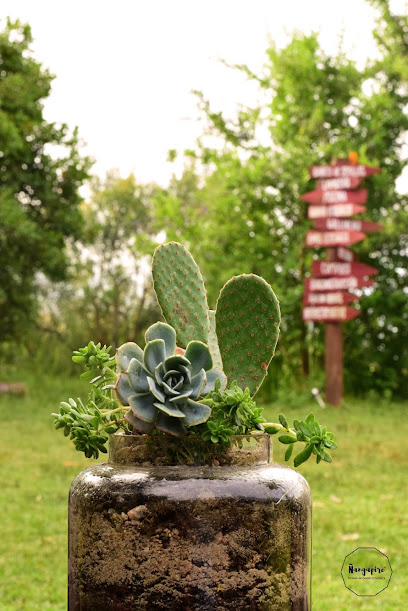
Museo De Geociencias
Explore the geological treasures of Uruguay at Museo De Geociencias, an engaging museum in Tacuarembó that captivates visitors with its rich exhibits and interactive experiences.

Muart, Museum of Visual Arts in Tacuarembó
Explore the vibrant artistic landscape of Tacuarembó at Muart, Museum of Visual Arts, showcasing local and international talent in a captivating setting.

VER
Discover unique fashion pieces at VER clothing store in Tacuarembó, blending local culture with modern trends for every tourist's wardrobe.
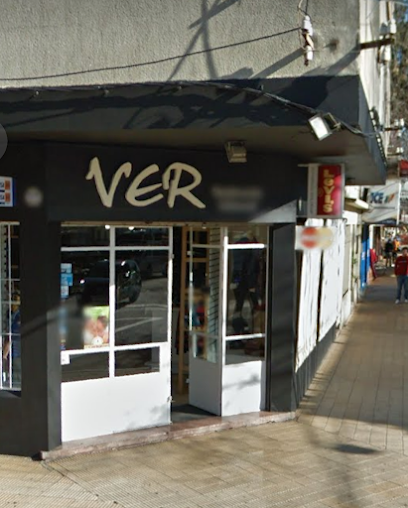
Valle Eden y Cueva de Chivo (o de los chivos)
Explore the captivating Valle Eden and Cueva de Chivo, a stunning natural attraction in Tacuarembó, Uruguay, perfect for adventure and relaxation.

Unmissable attractions to see
Plaza on April 19
Discover the tranquility and cultural charm of Plaza on April 19, a must-visit park in Tacuarembó, Uruguay, perfect for relaxation and local experiences.
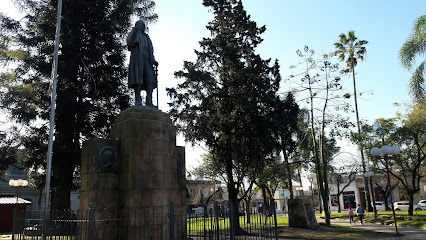
Rodó Park
Discover the natural beauty of Rodó Park in Tacuarembó, Uruguay—a perfect spot for relaxation, family outings, and scenic strolls.
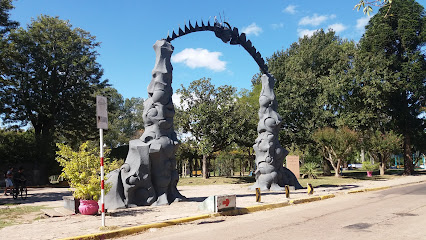
Carlos Gardel Museum
Explore the Carlos Gardel Museum, where the legacy of tango comes alive through exhibits, memorabilia, and the passion of Argentina's beloved musical icon.
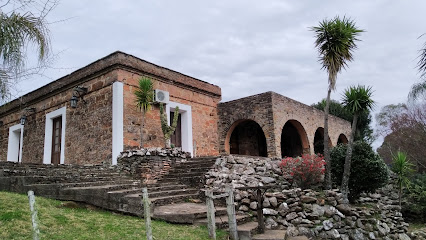
Deep Well
Discover the serene beauty and cultural richness of Deep Well in Valle Edén, a must-visit tourist attraction for nature lovers.

Obelisco Tacuarembo
Discover the Obelisco Tacuarembo, a magnificent landmark celebrating the cultural heritage of Tacuarembo, Uruguay.
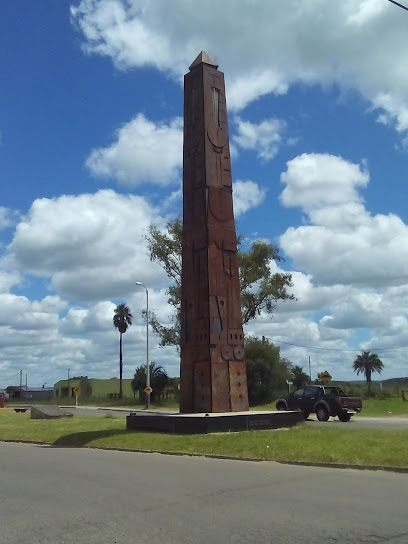
Indian Museum
Explore the Indian Museum in Tacuarembo - a vibrant journey through Uruguay's indigenous heritage, showcasing rich traditions and cultural artifacts.
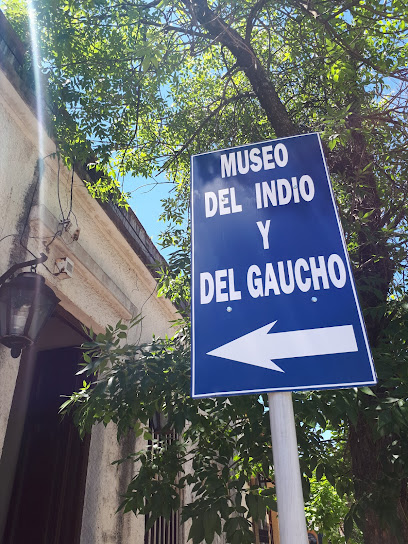
Museo De Geociencias
Discover the geological marvels of Uruguay at Museo De Geociencias in Tacuarembó, a fascinating museum for curious travelers and geology enthusiasts alike.
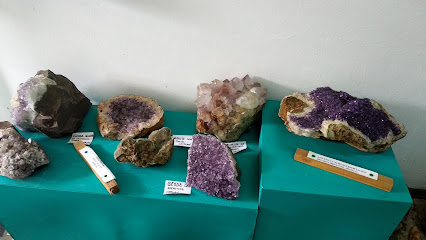
Muart, Museum of Visual Arts in Tacuarembó
Discover the artistic treasures of Tacuarembó at the Muart Museum of Visual Arts, where culture and creativity come alive.

Valle Eden y Cueva de Chivo (o de los chivos)
Explore the enchanting Valle Eden y Cueva de Chivo, a natural wonder in Tacuarembó, perfect for adventure and tranquility seekers alike.
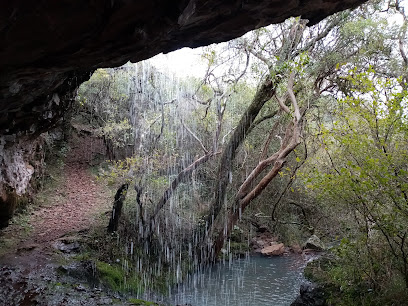
Gruta de los helechos
Explore the breathtaking beauty of Gruta de los Helechos, a national reserve featuring stunning caves and rich biodiversity in Tacuarembó, Uruguay.
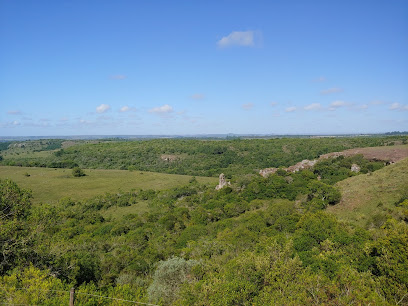
Essential places to dine
América
Discover authentic Uruguayan flavors at América in Tacuarembó - open 24/7 for all your culinary cravings.
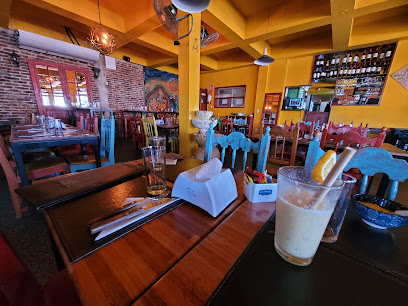
Parrillada La Rueda
Experience the heart of Uruguayan cuisine at Parrillada La Rueda in Tacuarembó—where every meal is a celebration of flavor and tradition.

The Gamo
Experience the best of Uruguayan cuisine at The Gamo in Tacuarembó - where flavors meet tradition.

La Estación
Discover the flavors of Uruguay at La Estación - where delicious pizzas meet gourmet burgers in Tacuarembó's vibrant dining scene.

V8
Discover authentic Uruguayan flavors at V8 in Tacuarembó - where every meal is a celebration of tradition and taste.

Café San Fele
Discover authentic Italian flavors at Café San Fele in Tacuarembó - where every meal feels like a celebration.

Biru biru
Discover the authentic flavors of Uruguay at Biru Biru in Tacuarembó, where delicious cuisine meets warm hospitality.

Mama Mia Pizzeria
Experience authentic Italian flavors at Mama Mia Pizzeria in Tacuarembó – where delicious pizza meets warm hospitality.

Lo De Viko
Discover authentic Italian cuisine at Lo De Viko in Tacuarembó—where every pizza tells a story of flavor.

El General
Discover El General in Tacuarembo - A Burger Paradise Offering Delicious Meals and Friendly Service in Uruguay.
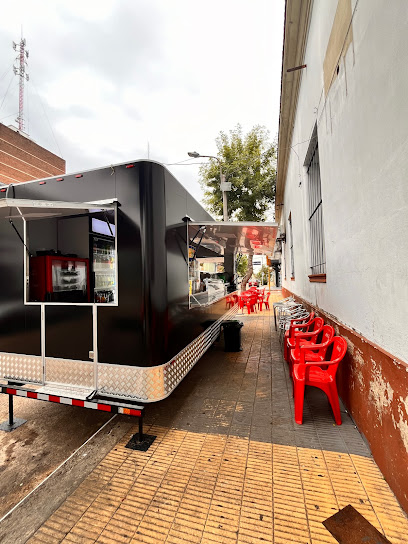
Comidas caseras
Experience the heartwarming flavors of homemade Uruguayan dishes at Comidas Caseras in Tacuarembó - where every meal feels like home.

La cabaña
Experience authentic Uruguayan flavors at La Cabaña in Tacuarembó—where tradition meets taste in a cozy setting.
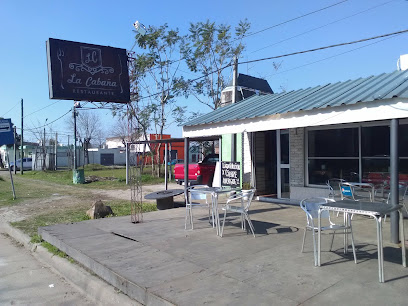
Il quijote
Discover authentic Uruguayan cuisine at Il Quijote, Tacuarembó's culinary treasure offering warm hospitality and delicious local flavors.
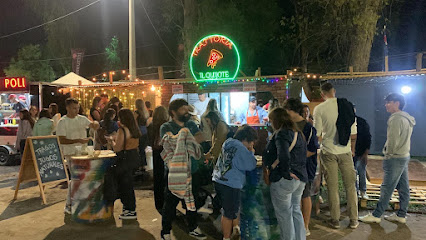
24 hs Degustar
Discover authentic Uruguayan cuisine at 24 hs Degustar – open around the clock for unforgettable flavors in Tacuarembó.

Fordt City
Experience the rich flavors of Uruguay at Fordt City – Tacuarembó's favorite dining destination offering delightful cuisine in a cozy setting.
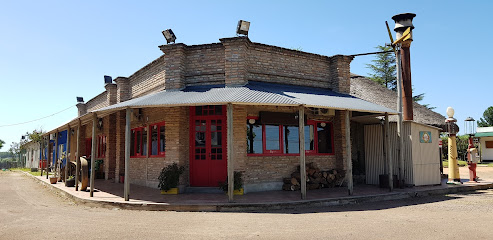
Markets, malls and hidden boutiques
Parisien
Explore Parisien in Tacuarembó for a unique selection of women's clothing that reflects local style and creativity.

Paprika Tacuarembó
Explore the stylish collections at Paprika Tacuarembó, a premier dress store offering unique fashion choices in the heart of Uruguay.
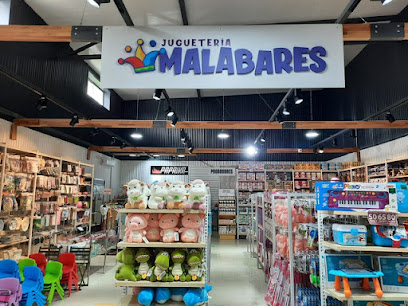
BAS
Discover unique apparel and local Uruguayan styles at BAS, the premier clothing store in Tacuarembó for fashion-forward travelers.
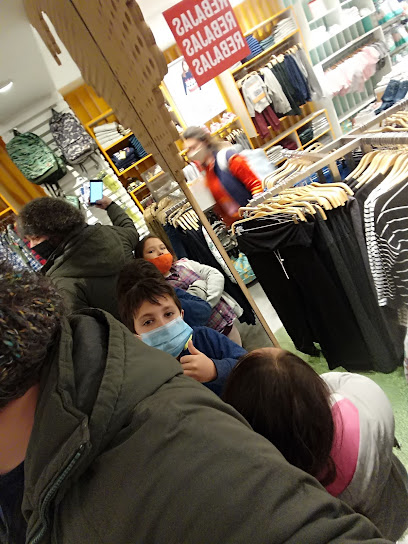
Guapa! Tacuarembo
Discover unique Uruguayan fashion at Guapa! Tacuarembo, a must-visit clothing store in the heart of Tacuarembo for tourists and locals alike.

Tiendas Montevideo
Discover unique home goods and traditional crafts at Tiendas Montevideo in Tacuarembó, where local artistry meets contemporary style.

Código Urbano
Explore Código Urbano in Tacuarembo, where unique local fashion meets exceptional customer service, creating an unforgettable shopping experience.
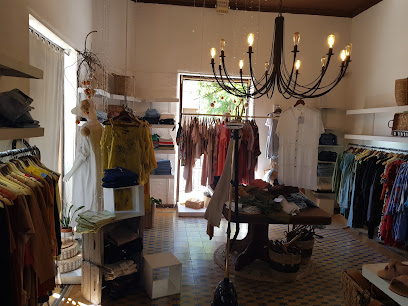
Regalar Muebles
Explore Regalar Muebles for exquisite Uruguayan furniture and decor in Tacuarembó, showcasing craftsmanship that embodies local culture.
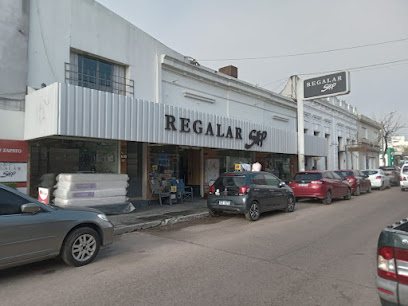
Tienda Ezquerra
Discover unique Uruguayan fashion at Tienda Ezquerra, a must-visit clothing store in Tacuarembó for stylish souvenirs.
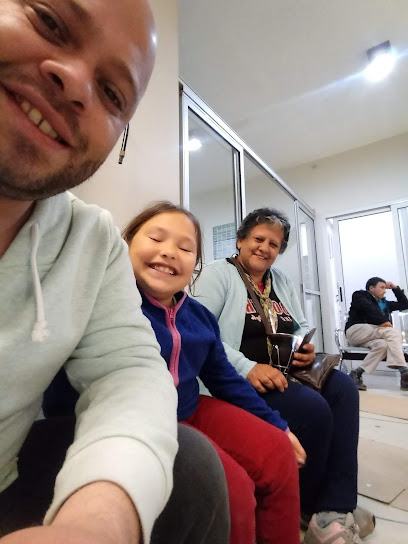
VER
Explore Tacuarembó's vibrant clothing store, offering unique fashion pieces that blend local craftsmanship with contemporary styles.

Tienda Tere-Mar
Discover unique clothing and local fashion at Tienda Tere-Mar, the heart of Tacuarembó's shopping scene.
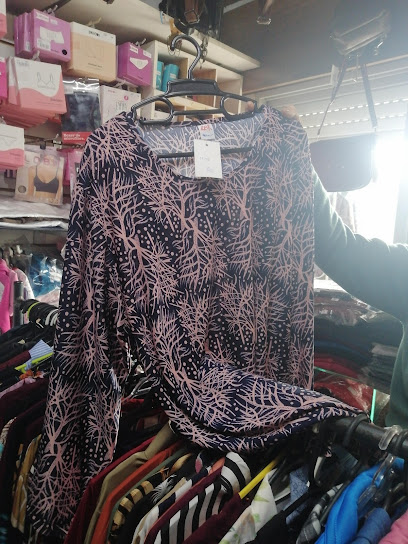
Paseo Shopping
Explore fashion and local culture at Paseo Shopping in Tacuarembó, Uruguay – a unique clothing store for every traveler.
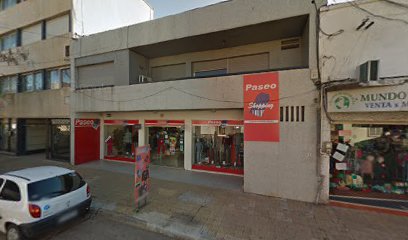
Cuatroases
Discover unique fashion at Cuatroases in Tacuarembó, where local style meets global trends in a charming boutique setting.
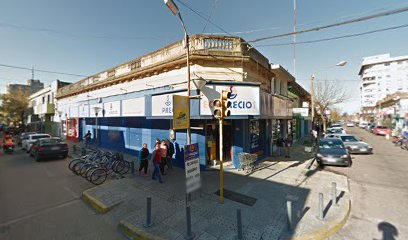
Dedícate A ti
Explore Dedícate A ti in Tacuarembó for premium health and beauty products, combining local charm with expert guidance for your self-care needs.

Combina
Explore Combina in Tacuarembó for unique local products and a charming shopping experience!
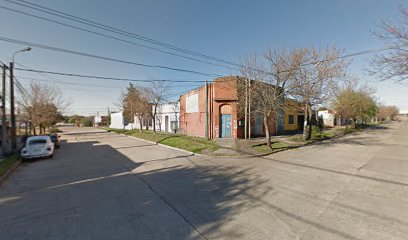
No se lo digas...
Explore the vibrant world of Uruguayan fashion at No se lo digas... in Tacuarembó, where style meets local charm.
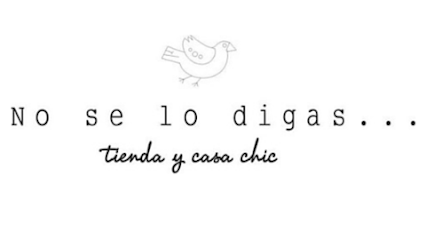
Essential bars & hidden hideouts
The Gamo
Experience the rich flavors of Uruguay at The Gamo, a top restaurant in Tacuarembó offering local and international culinary delights.

V8
Experience the vibrant culinary scene at V8 in Tacuarembó, where local flavors meet international cuisine in a warm and inviting atmosphere.

Biru biru
Discover the flavors of Uruguay at Biru Biru, Tacuarembo's culinary gem offering a diverse menu in a vibrant atmosphere.

Tocale Ficha Pool & Snack Bar
Experience relaxation and vibrant socializing at Tocale Ficha Pool & Snack Bar, the perfect bar for tourists in Tacuarembó, Uruguay.
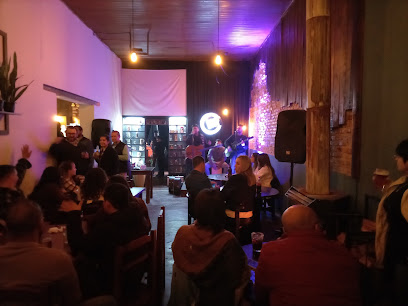
24 hs Degustar
Experience the flavors of Uruguay at 24 hs Degustar in Tacuarembó—open 24/7 for delightful local cuisine and a warm atmosphere.

La rueda Parrillada y restaurante
Discover the authentic taste of Uruguayan barbecue at La Rueda Parrillada y Restaurante in Tacuarembo, where every meal is a flavorful experience.

Living
Discover the lively atmosphere of Living Bar in Tacuarembó, a perfect destination for nightlife lovers seeking cocktails and local culture.
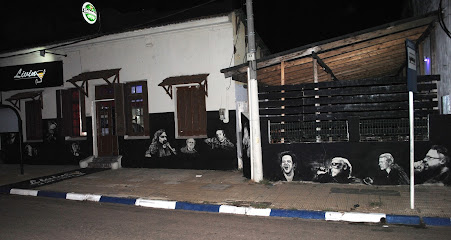
Bar Marquito
Experience the lively ambiance and delightful local flavors at Bar Marquito, a must-visit bar in Tacuarembó, Uruguay.
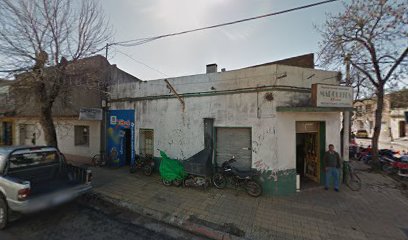
El Ferruyen
Experience the charm of Tacuarembó at El Ferruyen, a cozy lounge offering local drinks and snacks in a warm atmosphere.
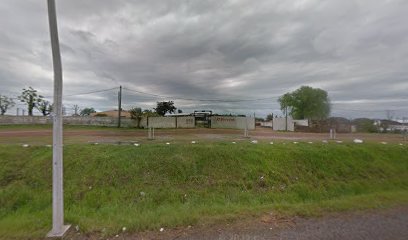
BAR VIERNES 13
Discover the vibrant nightlife at BAR VIERNES 13 in Tacuarembó, where local culture meets a lively bar atmosphere.

Pizza Garage
Experience the vibrant flavors of Tacuarembó at Pizza Garage, where delicious pizzas and a lively bar atmosphere await every visitor.
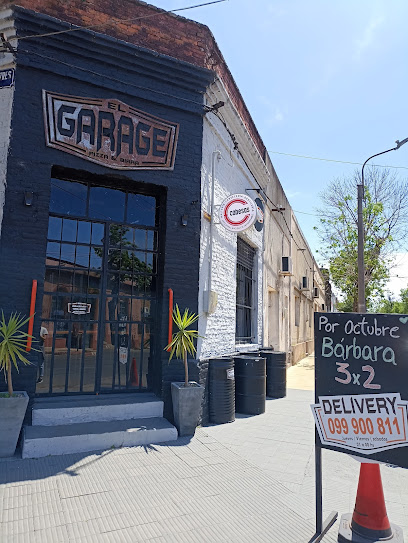
Burger Bar
Discover the flavors of Tacuarembó at Burger Bar, where delicious hamburgers and a friendly atmosphere await you.

Sadaro Delicias Caseras
Discover the essence of Uruguayan culture at Sadaro Delicias Caseras, a charming bar in Tacuarembó offering delicious homemade dishes and vibrant ambiance.

Los Trapitos
Immerse yourself in Tacuarembó's vibrant bar scene at Los Trapitos, where local culture and nightlife come alive with every visit.

Local Phrases
-
- HelloHola
[oh-lah] - GoodbyeChau
[chow] - YesSí
[see] - NoNo
[noh] - Please/You're welcomePor favor/De nada
[por fah-vohr/deh nah-dah] - Thank youGracias
[grah-syahs] - Excuse me/SorryDisculpe/Perdón
[dees-kool-peh/pehr-dohn] - How are you?¿Cómo estás?
[koh-moh ehs-tahs] - Fine. And you?Bien. ¿Y tú?
[byen. ee too] - Do you speak English?¿Hablas inglés?
[ah-blahs een-glehs] - I don't understandNo entiendo
[noh ehn-tee-ehn-doh]
- HelloHola
-
- I'd like to see the menu, pleaseMe gustaría ver el menú, por favor
[meh goos-tah-ree-ah vehr ehl meh-noo, poor fah-vohr] - I don't eat meatNo como carne
[noh koh-moh kahr-neh] - Cheers!¡Salud!
[sah-lood] - I would like to pay, pleaseQuisiera pagar, por favor
[kee-see-eh-rah pah-gahr, poor fah-vohr]
- I'd like to see the menu, pleaseMe gustaría ver el menú, por favor
-
- Help!¡Ayuda!
[ah-yoo-dah] - Go away!¡Vete!
[veh-teh] - Call the Police!¡Llama a la Policía!
[yah-mah ah lah poh-lee-see-ah] - Call a doctor!¡Llama a un médico!
[yah-mah ah oon meh-dee-koh] - I'm lostEstoy perdido
[ehs-toy pehr-dee-doh] - I'm illEstoy enfermo
[ehs-toy ehn-fehr-moh]
- Help!¡Ayuda!
-
- I'd like to buy...Me gustaría comprar...
[meh goos-tah-ree-ah kohm-prahr] - I'm just lookingSólo estoy mirando
[soh-loh ehs-toy mee-rahn-doh] - How much is it?¿Cuánto cuesta?
[kwan-toh kwehs-tah] - That's too expensiveEsto es demasiado caro
[ehs-toh ehs deh-mah-syah-doh kah-roh] - Can you lower the price?¿Puedes bajar el precio?
[pweh-dehs bah-hahr ehl pree-syoh]
- I'd like to buy...Me gustaría comprar...
-
- What time is it?¿Qué hora es?
[keh oh-rah ehs] - It's one o'clockEs la una
[ehs lah oo-nah] - Half past (10)Media (10)
[meh-dee-ah (diez)] - MorningMañana
[mah-nyah-nah] - AfternoonTarde
[tahr-deh] - EveningNoche
[noh-cheh] - YesterdayAyer
[ah-yehr] - TodayHoy
[oy] - TomorrowMañana
[mah-nyah-nah] - 1Uno
[oo-noh] - 2Dos
[dohs] - 3Tres
[trehs] - 4Cuatro
[kwah-troh] - 5Cinco
[seen-koh] - 6Seis
[says] - 7Siete
[syeh-teh] - 8Ocho
[oh-choh] - 9Nueve
[nweh-veh] - 10Diez
[diez]
- What time is it?¿Qué hora es?
-
- Where's a/the...?¿Dónde está...?
[dohn-deh ehs-tah] - What's the address?¿Cuál es la dirección?
[kwal ehs lah dee-rehk-syohn] - Can you show me (on the map)?¿Puedes mostrarme (en el mapa)?
[pweh-dehs mohs-trahr-meh (ehn ehl mah-pah)] - When's the next (bus)?¿Cuándo es el próximo (autobús)?
[kwan-doh ehs ehl prohk-see-moh (ow-toh-boos)] - A ticket (to ....)Un boleto (a ...)
[oon boh-leh-toh (ah ...)]
- Where's a/the...?¿Dónde está...?
History of Tacuarembó
-
The city of Tacuarembó was officially founded on January 21, 1832, by Bernabé Rivera, a relative of Uruguay's first President, Fructuoso Rivera. The settlement was established as a strategic location during the early years of the Republic, serving as a focal point for the protection and development of the northern regions of Uruguay.
-
The Battle of Tacuarembó, fought on January 22, 1820, was a significant conflict between the Portuguese forces led by Bento Manuel Ribeiro and the Artiguist forces led by Andrés Latorre. This battle marked a decisive victory for the Portuguese, leading to the eventual decline of the Artiguist movement and the annexation of the Banda Oriental by Brazil.
-
Tacuarembó is widely recognized for its strong cultural heritage, particularly its connection to the gaucho traditions. The annual 'Fiesta de la Patria Gaucha,' held in March, is one of the largest gaucho festivals in Uruguay. This event celebrates the rural lifestyle, featuring rodeos, traditional music, dance, and parades, preserving the rich cultural legacy of the Uruguayan gaucho.
-
Tacuarembó claims to be the birthplace of Carlos Gardel, the legendary tango singer, though this is a matter of historical debate. The city honors Gardel with a museum dedicated to his life and work, showcasing memorabilia, photographs, and recordings. Whether or not Gardel was born here, his influence permeates the local culture, with tango music and dance being integral parts of Tacuarembó's cultural identity.
-
The economy of Tacuarembó has historically been centered around livestock farming, particularly cattle and sheep. The region's vast pastures and favorable climate conditions have made it a key area for Uruguay's agricultural industry. Over the years, advancements in farming techniques and infrastructure have contributed to Tacuarembó's role as a vital hub for meat and wool production in the country.
-
Tacuarembó boasts a variety of natural attractions, including the Valle Edén and the Quebrada de los Cuervos. These areas are renowned for their stunning landscapes, diverse flora and fauna, and opportunities for outdoor activities such as hiking, bird watching, and horseback riding. The emphasis on ecotourism has grown in recent years, attracting visitors looking to experience the natural beauty and tranquility of the region.
Tacuarembó Essentials
-
Tacuarembó is located in the northern part of Uruguay. The nearest international airport is Carrasco International Airport in Montevideo, approximately 400 kilometers away. From Montevideo, you can take a bus to Tacuarembó, with several daily departures offered by companies like Turil and Agencia Central. The journey typically takes around 6 to 7 hours by road. Alternatively, you can rent a car and drive to Tacuarembó, which offers a more flexible travel experience through the Uruguayan countryside.
-
Tacuarembó is a relatively small city, and many of its attractions are within walking distance. For longer trips within the city or to nearby areas, local taxis are readily available and reasonably priced. There are also local bus services connecting different parts of the city. Renting a car can be a convenient option if you plan to explore the surrounding rural areas and attractions at your own pace.
-
The official currency in Uruguay is the Uruguayan Peso (UYU). Credit cards are widely accepted in hotels, restaurants, and larger shops in Tacuarembó. However, it is advisable to carry some cash, especially when visiting smaller establishments or rural areas. ATMs are available in Tacuarembó, but it is wise to withdraw sufficient cash before traveling to more remote locations.
-
Tacuarembó is generally a safe destination for tourists. However, it is advisable to take standard precautions, such as avoiding walking alone at night in unfamiliar areas and keeping an eye on your belongings in crowded places. While there are no specific high-crime areas targeting tourists, it is always best to stay vigilant and aware of your surroundings.
-
In case of emergency, dial 911 for immediate assistance. The local hospital and medical facilities are available in Tacuarembó. It is recommended to have travel insurance that covers medical emergencies. For minor health issues, there are pharmacies throughout the city where you can purchase over-the-counter medications.
-
Fashion: Do dress comfortably and practically, especially if you plan to explore rural areas. Avoid overly revealing clothing. Religion: Do respect local customs and traditions when visiting religious sites. Public Transport: Do be courteous and patient when using public transport. Don't eat or drink on public buses. Greetings: Do greet people with a handshake and a friendly smile. Eating & Drinking: Do try local dishes and accept food offerings graciously. Don't refuse hospitality, as it is considered impolite.
-
To experience Tacuarembó like a local, visit the local markets where you can buy fresh produce and traditional Uruguayan goods. Engage with locals, as they are often friendly and willing to share stories about the city's history and culture. Don't miss visiting the Carlos Gardel Museum, dedicated to the famous tango singer who is said to have been born in the area. Additionally, exploring the countryside offers a chance to see beautiful landscapes and experience rural Uruguayan life.
Trending Landmark in Tacuarembó
-
Plaza on April 19
-
Rodó Park
-
Hotel Carlos Gardel
-
FordT City Hotel
-
Carlos Gardel Museum
-
Deep Well
-
Obelisco Tacuarembo
-
Indian Museum
-
Puente Colgante
-
Complejo San Fructuoso
-
Ñangapiré Posada de Campo
-
Museo De Geociencias
-
Muart, Museum of Visual Arts in Tacuarembó
-
VER
-
Valle Eden y Cueva de Chivo (o de los chivos)
Nearby Cities to Tacuarembó
-
Things To Do in Fray Bentos
-
Things To Do in Colonia del Sacramento
-
Things To Do in Montevideo
-
Things To Do in Maldonado
-
Things To Do in Punta del Este
-
Things To Do in Buenos Aires
-
Things To Do in La Plata
-
Things To Do in Rosario
-
Things To Do in Encarnacion
-
Things To Do in Carmen del Parana
-
Things To Do in Villarrica
-
Things To Do in Puerto Iguazú
-
Things To Do in Foz do Iguaçu
-
Things To Do in Mar del Plata
-
Things To Do in Ypacarai







